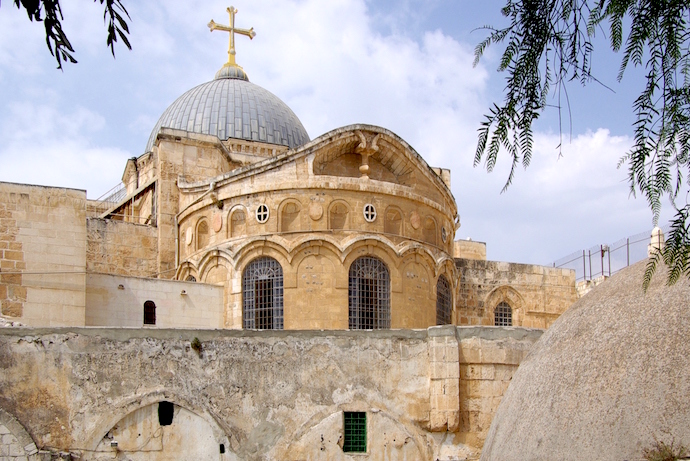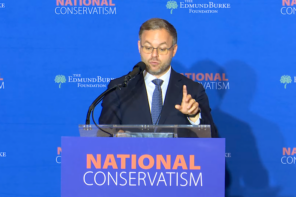In case you’re thinking that Ukraine is the only place in the world where Orthodox Christianity is entangled in a global hotspot, please turn your eyes to Jerusalem. Two days ago, following an eighteen-year struggle, members of the Israeli settler organization, Ateret Cohanim, with the assistance of police, took control of part of the Petra Hotel in the Christian Quarter of Jerusalem’s Old City, drawing criticism from the city’s Christian leaders including the Greek Orthodox Patriarch of Jerusalem, who leads Israel’s largest Christian community and whose church owns the seized hotel.
The vast majority of Christians in Israel are Palestinian Arabs, although they make up a small minority among Palestinians as a whole. Their status as a minority within a minority has been a source of significant difficulty for Arab Christians, and the sizable wealth of the Greek Orthodox Patriarchate of Jerusalem has made it a target for both the Israeli government and Palestinian Authority.
In 2020, an Israeli District Court ruled against the Patriarchate when it attempted to block the sale of other property to Ateret Cohanim. And Hamas has regularly targeted Palestinian Christians for discrimination, including attempting to curb the public celebration of Christian holidays.
As Christians, they’ve largely been left without the assistance of the region’s Muslim powers, interested mainly in the protection of their co-religionists. Likewise, they’re forgotten by American evangelical Christians whose pro-Israel, pro-Bring-On-Armageddon views leave little room for an actually persecuted group of Christians.
This has left the community with little hope and thousands, particularly young people, have left the region in recent years, raising concern that this ancient community may not survive.
This desperation, by the way, hasn’t gone unnoticed by Russia. As a result, the Russian Orthodox Church has courted the Patriarchate of Jerusalem in its ongoing struggle with the Ecumenical Patriarchate of Constantinople for control of the Orthodox world, offering vague (and probably unreliable) offers of protection.
And they’ve had some success.
The Patriarchate of Jerusalem is one of the few Orthodox jurisdictions that hasn’t moved to name Russia as the aggressor in the conflict and outright condemn the invasion. It’s a difficult position that puts them at odds not only with a large swath of the Orthodox Christian world, but many Palestinians, who had hoped (perhaps without reason) that they could leverage the global response to the Russian invasion of Ukraine to draw attention to perceived abuse of Palestinians by the Israeli government and perhaps obtain similar global condemnation for those abuses, including sanctions.
Few would envy the position of the Holy Land’s native Christian population faced with two terrible choices: side with the world community against Russia and remain invisible or side with Russia, the only entity that’s even offered hope for support (however unlikely). It’s clear they’re not a priority for other Palestinians or for Christians outside of Israel—Orthodox or otherwise.
In the Gordian knot that is the Israeli-Palestinian conflict, they are the forgotten thread. But they are an excellent, living example, of the fraught modern history of Orthodox Christian communities, a history that does involve real oppression and marginalization.
This is important, because this real history feeds hysterical political narratives like the ones we’re seeing come from the mouths of Vladimir Putin and Patriarch Kirill. Claims that dark forces (including “the West,” LGBT people, NATO, and Jews) are plotting to destroy Orthodox Christianity appear to be legitimated when these kinds of things happen within the walls of Jerusalem. The best way to combat this conspiracy rhetoric is to address the real concerns of Eastern Christians as they emerge. And that means having to pay attention to hotels in Jerusalem’s Old City.





